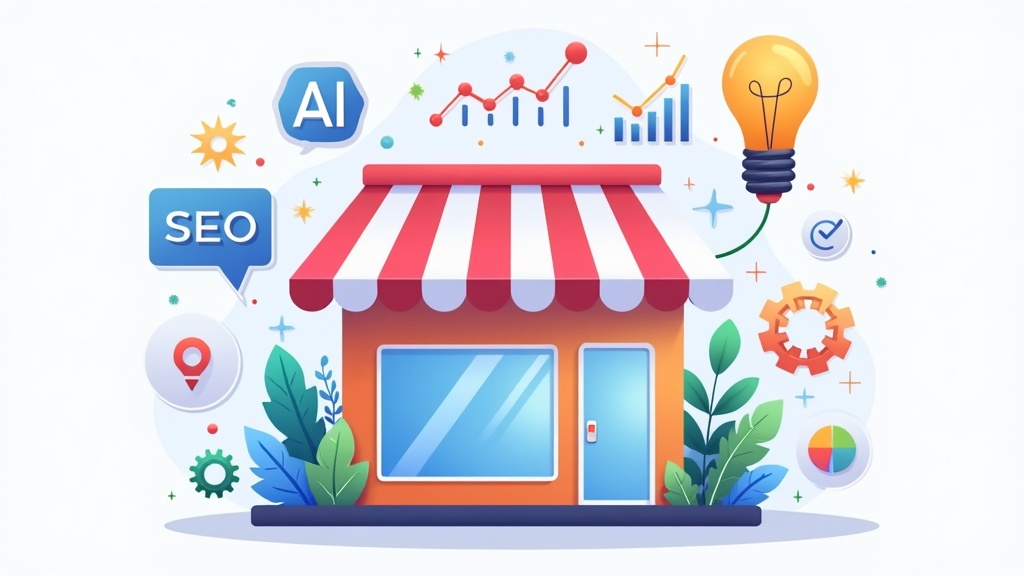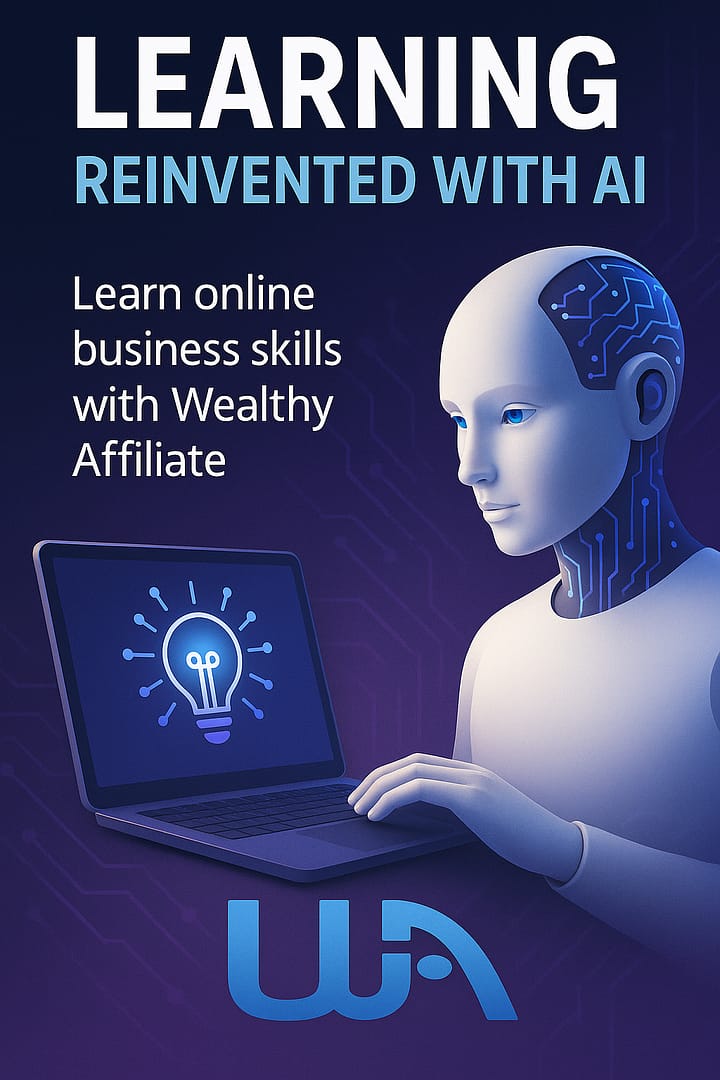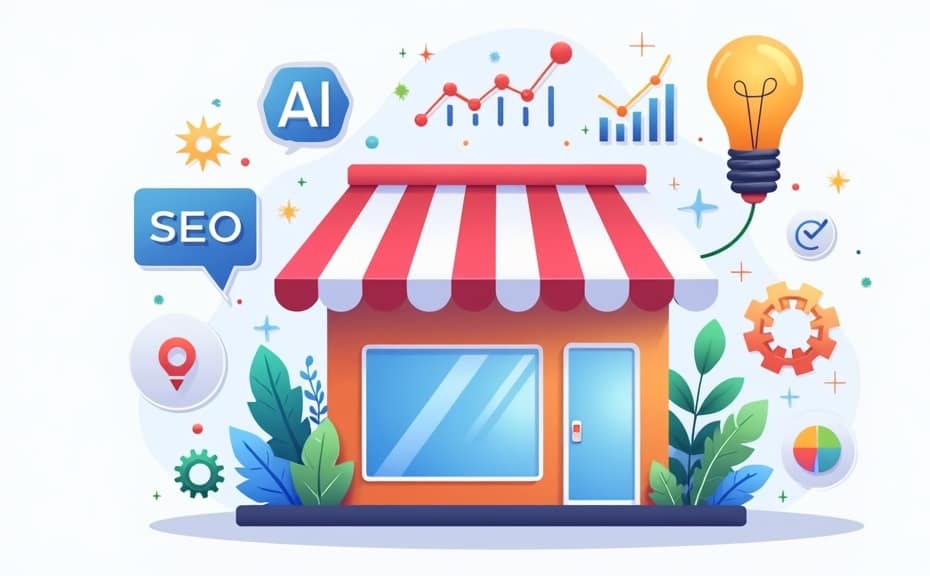
Seo And Ai For Small Business Owners
SEO and AI are game changers for small business owners, especially for anyone looking to attract new customers online. When I first started learning about SEO (search engine optimization), I realized it can seem pretty technical. Still, it’s actually straightforward once you break it down. With the rapid growth of AI-powered tools, running and promoting a business online has become more manageable and even more efficient. Here’s my personal take on how small business owners, like myself, can make the most out of SEO and AI to boost their online presence and drive real results.
Why SEO Matters for Small Businesses
SEO helps people find your business when they search on Google or other search engines. For small business owners, this can mean showing up when someone nearby is looking for your products or services. Over 90% of online experiences start with a search engine, which means that if you’re not optimizing your website, you could be missing out on potential customers.
SEO also levels the playing field. Even if I’m competing with big brands, strong local SEO can help my business show up at the top of search results in my area. According to HubSpot, 46% of all Google searches are looking for local information. That gives small businesses like mine a real shot at connecting with buyers ready to make a purchase. Plus, as local search continues to grow quickly, it becomes even more important for small businesses.
Another aspect I stumbled upon is how search engines trust businesses with helpful, reliable content. By consistently adding useful content and updating business information, even the smallest companies can build reputations that encourage both visitors and search engines to pay attention.
What Is AI and How Does It Affect SEO?
AI stands for artificial intelligence, which refers to computer programs that mimic human thinking, learning, and problem-solving. AI is already built into many tools I use every day, such as Google Search, online chatbots, and even social media advertising. When it comes to SEO, AI can analyze huge amounts of data, spot patterns, and help me make decisions more quickly than I ever could alone.
AI-powered SEO tools help me identify the best keywords, build content ideas, and even predict which adjustments will have the most impact on my website’s rankings. Google’s own algorithms use AI to decide which search results to show. By using AI tools myself, I can keep up with how Google ranks websites and make smarter choices for my own site. Even basic AI helpers for grammar, spelling, and image selection can give my content a boost, making it more appealing to both people and search engines.
The popular use of AI in SEO is still growing fast, with new platforms launching regularly. By keeping an eye out for these advancements, I make sure I am not missing out on effective new strategies, analytics, and time-saving shortcuts for my business.
Getting Started: SEO Basics Every Small Business Owner Should Know
I found that starting with the basics gives the best foundation for long-term results. Here are some terms that made a big difference for me:
- Keywords: The words and phrases people type into search engines. By adding these to my website, I help match what customers are looking for.
- Onpage SEO: Making sure my website pages are easy to read for both visitors and search engines. That includes using clear headings, organizing content, and adding images with helpful file names.
- Local SEO: Optimizing my site and business listings so I appear in searches from people nearby. For example, updating my Google Business Profile helps my shop show up when someone in my town looks for my services.
There’s more to SEO, such as technical tasks like making sure your website loads quickly, is mobilefriendly, and doesn’t have broken links. While these can get complicated, many platforms now offer AIpowered site scans and reports to keep things running smoothly.
Practical Ways Small Businesses Can Use AI for SEO
AI might sound advanced, but there are simple ways I use it for SEO in my own business. Here are a few practical ideas you can try:
- AI Content Tools: Tools like ChatGPT or Jasper can help brainstorm blog post ideas, write catchy headlines, or even produce SEOfriendly product descriptions. I always doublecheck and add my own touch, but these tools speed up the writing process.
- Keyword Research: AIpowered platforms like SEMrush and Ahrefs show which keywords customers use most and even what competitors are targeting. This helps me come up with new content ideas or optimize pages that aren’t performing well.
- Smart Analytics: Some website platforms use AI to suggest improvements, flag slow loading pages, or highlight sections where visitors drop off. When I get these suggestions, I make small changes that boost results over time.
- AIDriven Chatbots: Installing a chatbot on my website answers common questions even when I’m not available. This keeps people engaged and can lead to more inquiries or sales.
There are also smart image tools that suggest better visuals or help with building alt tags—details that improve both SEO and accessibility.
Top Things to Consider Before Investing in SEO and AI Tools
Not every SEO or AI tool fits every business. I had to think about what would help most for my own goals and budget. These are a few questions I asked myself before choosing new tools and strategies:
- Budget Friendliness: Prices for AI and SEO tools range from free to fairly expensive. I tried a few free versions to see what I really needed before committing to paid plans.
- Learning Curve: Some tools take more time to learn than others. Starting with platforms that have strong support and tutorials helped me get comfortable more quickly.
- Integration: Before picking a tool, I checked if it works smoothly with my existing website and marketing software. For example, some website builders already include builtin SEO and AI features.
- Real Needs: There are a lot of distractions out there. I focus on tools that support my core business goals, attracting local customers, improving website traffic, and saving my time.
Budget Friendliness
When I was starting out, spending on new technology felt stressful. By using free trials, I learned which tools genuinely made a difference. Free keyword research tools and website analyzers let me test what worked before making any purchases. This approach kept my marketing budget in check and helped avoid paying for features I didn’t need. I encourage other business owners to check out free versions first.
Learning Curve
Some AIpowered tools can look intimidating at first. I looked for ones with easy to understand dashboards and active user communities. Watching a few YouTube tutorials or joining a Facebook group made a real difference when learning something new and made the whole process less frustrating.
Integration
It saves time and headaches when tools connect easily. I use website builders like Wix or Shopify that offer builtin SEO settings and options to add AIpowered plugins. This way, I don’t have to juggle too many different systems and everything runs smoothly together.
Real Needs
There’s a temptation to try every new AI tool that promises quick results. I stick to the ones that help me solve real problems, such as automating my email responses or creating website content faster, instead of being distracted by shiny new options that don’t deliver practical benefits. Focusing on the basics ensures steady progress over time.
Tips for Making the Most of SEO and AI
Once I set the basics, I experimented with a few more advanced tactics to get even better results. Here’s what made a difference in my experience:
Update Website Content Regularly: AI tools can remind me when blog posts or pages are getting outdated, helping me stay relevant in search engines.
Focus on User Experience: Search engines like Google reward websites that load quickly and are easy to use. Using AI tools to scan for slow pages or broken links helps keep visitors happy.
Monitor Results and Adjust: I check my website traffic in Google Analytics and use AIpowered insights to identify what’s working. This helps me switch up my strategy when trends change.
Embrace Local Listings: Make sure your business is listed in local directories and on maps. AI tools can track how you appear in these listings and highlight missing or outdated info. Keeping this consistent gives your business a boost for customers searching nearby.
What Small Businesses Need for Success with SEO and AI
Based on my experience, having a practical toolkit makes ongoing improvement much easier. Here are some tools and techniques that work well for small businesses:
- Google Business Profile: Keeps your business information up to date on Google, which really helps with local SEO.
- SEO Plugins: If you use WordPress, plugins like Yoast or Rank Math walk you through optimizing each page for search engines.
- AI Content Editors: Tools like Grammarly check for mistakes and suggest clearer ways to write, which gives a boost to readability for both people and search engines.
- Schedule Updates: I block out a little time each month to review rankings, add new content, and check for broken links. Staying consistent adds up over time.
Email Marketing Automation: AI can help schedule email blasts, segment your contact list, and suggest the best times to reach your audience. Staying in touch with customers keeps your brand top of mind and supports your SEO strategy by encouraging repeat visits and engagement.
Frequently Asked Questions
This section covers questions I often hear from fellow small business owners.
Question: How long does it take to see SEO results?
Answer: SEO is a long-term strategy. When I started, it took a few months to see real improvements, but traffic continued growing each month after that.
Question: Do I need to hire an expert or can I do SEO myself?
Answer: Many small business owners can handle the basics themselves, especially with userfriendly tools available. As your business grows or your goals get bigger, it sometimes makes sense to work with a professional or an agency for specialty tasks.
Question: Will AI replace human input in SEO?
Answer: AI is really helpful, but I find that combining it with my own experience and creativity delivers the best results. AI saves time and provides ideas, but personalizing content and understanding my local market keeps my business unique.
Question: How can I keep up with updates in SEO and AI?
Answer: I set aside time each month to read articles or watch webinars about new tools or updates from Google. Following industry blogs and joining local business groups gives insights and quick tips that help me stay on top of changes without feeling overwhelmed.
Final Thoughts
SEO and AI can open doors for small business owners willing to experiment and keep learning. By starting with the basics, trying new tools, and focusing on what matters for your customers, you can build an online presence that keeps growing. I’ve seen real growth in my own business from these strategies, and I believe any small business owner can benefit with patience and a willingness to keep adapting. Staying curious is the best way forward as technology keeps moving ahead.

SEO optimizer GPT
A GPT tool for dynamic SEO analysis and blog optimization.



